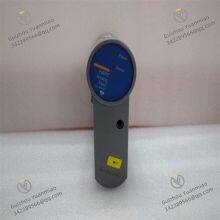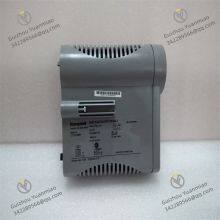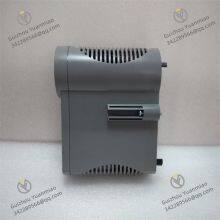Material
Other, Honeywell
Condition
Other, Global universal model
Task
Other, Global universal model
Mathematical Model
Other, Global universal model
Signal
Other, Global universal model
Customized
Other, Global universal model
Structure
Other, Global universal model
Dimensions
125mm×100mm×35mm
Temperature
-40℃~+85℃
Weight
0.4kg
Honeywell CC-PAIH51
I. Functional FeaturesMulti-channel High-precision Analog Input
Supports 16-channel analog input, compatible with current (e.g., 4-20mA) and voltage (e.g., 0-10Vdc) signals, meeting the access requirements of various sensors in industrial fields.
Channels 13-16 support differential input, which can effectively suppress common-mode interference and enhance signal stability in complex environments (such as electromagnetic interference scenarios).
16-bit high-resolution analog-to-digital conversion (A/D) ensures data acquisition accuracy, suitable for scenarios with high measurement precision requirements (e.g., chemical and pharmaceutical industries).
HART Protocol and Multi-protocol Compatibility
Built-in HART communication protocol supports bidirectional data interaction with field intelligent devices (such as pressure transmitters and flowmeters) to achieve remote parameter configuration, device diagnosis, and real-time data reading.
Compatible with industrial communication protocols such as Modbus and Canopen, it can be seamlessly integrated into SCADA systems, PLCs, or other automation control systems to enhance system interoperability.
Self-diagnosis and Safety Protection Mechanism
Equipped with full-link self-diagnosis function, it real-time monitors faults such as channel open circuit, short circuit, and signal abnormality, and outputs diagnostic information through indicator lights or communication interfaces for quick problem location.
Supports process variable protection (such as signal over-limit warning and data abnormality backup) to avoid control errors caused by signal fluctuations.
Wide Temperature and High Reliability Design
Adopts industrial-grade components, adapts to the wide temperature working environment of -40℃ to +85℃, and meets the application requirements of harsh industrial sites (such as outdoor and high-temperature workshops).
Anti-vibration and anti-electromagnetic interference design ensures long-term stable operation under complex working conditions.

II. Technical Parameters
| Parameter Category | Specific Indicators |
|---|
| Power Requirements | 24Vdc (typical value), supports wide voltage input (e.g., 18-30Vdc), power consumption ≤10W |
| Input Signal Range | - Current: 4-20mA, 0-20mA
- Voltage: 0-5Vdc, 0-10Vdc, ±10Vdc (optional for partial channels) |
| Resolution | 16 bits (corresponding to an accuracy of approximately 0.015% of full scale) |
| Sampling Rate | 100Hz (full-channel synchronous sampling), supports dynamic adjustment of sampling frequency to adapt to different scenarios |
| Measurement Accuracy | ±0.25% of full scale (at 25℃), repeatability ±0.05% of full scale, long-term stability ±0.1%/year |
| Communication Interfaces | - HART 5/7 protocol
- RS-485 (supports Modbus RTU), Ethernet (Modbus TCP optional) |
| Working Environment | - Temperature: -40℃~+85℃
- Humidity: 5%~95% RH (non-condensing)
- Protection level: IP20 (panel mounting) |
| Mechanical Parameters | - Dimensions: approximately 125mm×100mm×35mm (L×W×H)
- Weight: approximately 0.4kg
- Installation method: DIN rail or panel mounting |

III. Working PrincipleSignal Input
The module supports 16-channel single-ended current input, and the input type is current signals from 2-wire or self-powered transmitters, with the input range typically 4-20mA (through 200Ω). Field sensors (such as temperature, pressure, and flow sensors) convert the measured physical quantities into corresponding analog current signals and transmit them to the input port of the CC-PAIH51 module.
Signal Conversion
The module has a 16-bit analog-to-digital converter (ADC) inside, which converts the input analog current signal into a digital signal. In this way, the analog quantity is converted into a digital form that can be processed by the controller for subsequent calculation, analysis, and control.
Signal Processing and Filtering
To ensure data accuracy and stability, the module processes and filters the converted digital signals. For example, it has a normal mode filtering response, a single-pole RC filter that attenuates 3dB at 6.5Hz, effectively suppressing 60Hz interference signals, and also has good suppression capability for crosstalk from DC to 60Hz (inter-channel crosstalk is -60dB). In addition, it has a common-mode rejection function, with a common-mode rejection ratio (DC to 60Hz, 500Ω source unbalance) of 70dB, which can effectively suppress common-mode interference signals and improve signal quality.
HART Communication
CC-PAIH51 supports the HART communication protocol. Through this protocol, the module can communicate with other devices that support the HART protocol, such as sending the collected data to the control system and receiving instructions from the control system to realize functions such as configuration, diagnosis, networking, and monitoring of the module. In this way, users can complete relevant operations on the module through one software tool without purchasing additional software, reducing maintenance costs.
Data Output and Transmission
The processed and converted digital signals are transmitted to the connected control systems (such as PLCs and DCSs) in a specific format and protocol through the internal circuits and communication interfaces of the module. The control system can further process, analyze, and display these data, and control relevant actuators according to preset control strategies to achieve precise control and monitoring of industrial processes.

IV. Core Differences from CC-PAIH01 (Extended Comparison)
Referencing the previous model CC-PAIH01, CC-PAIH51 may be optimized in the following aspects:
Communication protocol upgrade: Possibly enhancing support for new industrial protocols (such as OPC UA) or improving the real-time performance of HART communication.
Anti-interference capability: Expanding differential input channels or upgrading hardware filter circuits to adapt to harsher electromagnetic environments.
Refined diagnostic functions: Adding channel-level fault location or real-time waveform monitoring functions to facilitate maintenance and debugging.














































